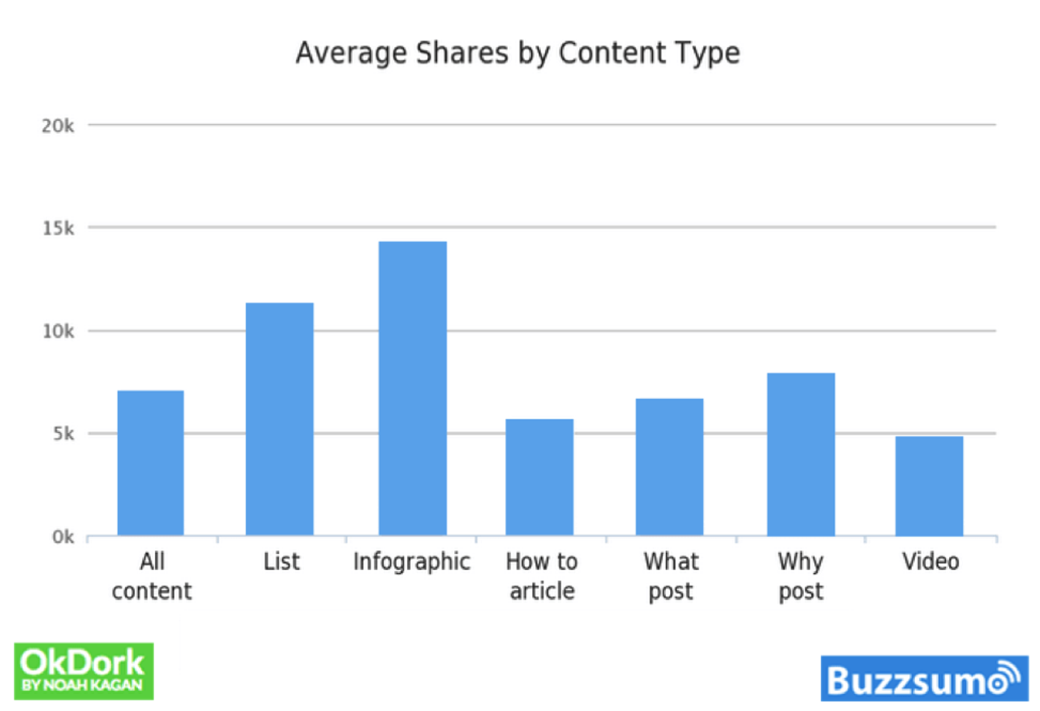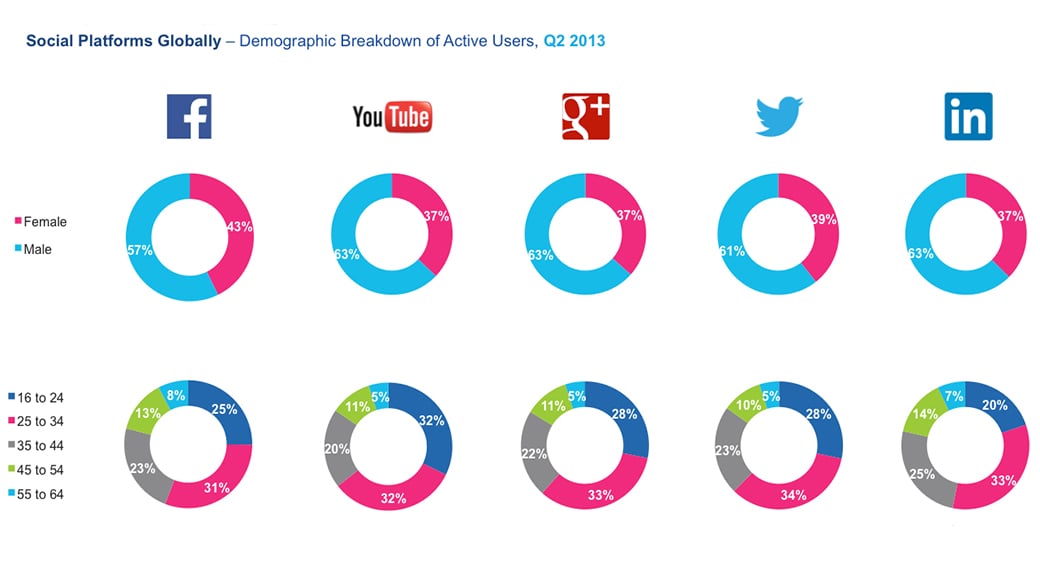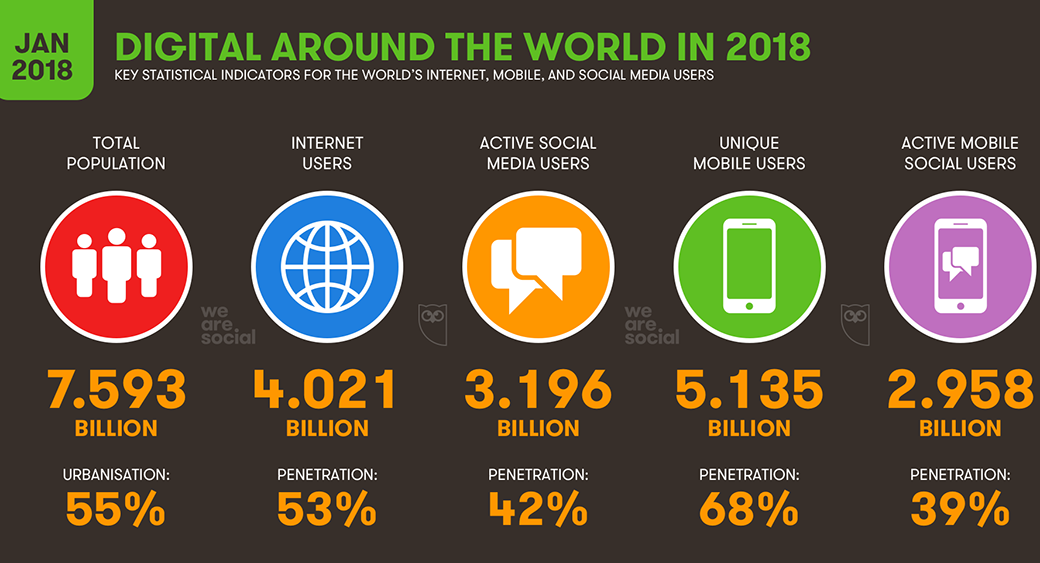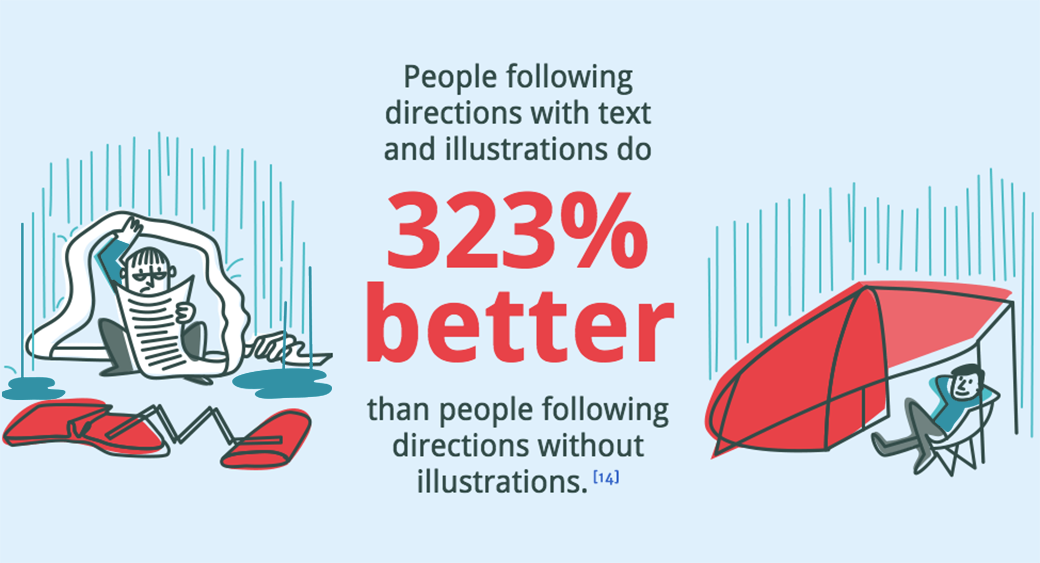Shareable Content – Winning Strategies, Techniques and Secret Tactics
Some content becomes viral within seconds, while other content remains ignored. Does this apply to you? Do you know why does it happen and how to create truly shareable content?

Although entertaining content is easy to share, informative articles and blog posts can be shareable too. With our tips, you can make your content more engaging, by learning:
- What factors do make the content shareable?
- How big companies use content to promote their brands.
- What role does social media play in strategizing content?
- How to apply these elements to your own content.
- Secrets of shareable content that marketers don’t want to tell you.
- Final thoughts.
What Factors Do Make Content Shareable?
Many brands struggle to create noticeable content that catches an audience’s attention enough to gain regular views and shares. However, the content strategy that applies user’s engagement is one the most effective ones to boost traffic, increase domain authority, spread awareness about your brand along with the products or services you offer.

In order to create shareable content, it’s essential to understand the motives and reasons which tend to stimulate said audience’s behavior. Many marketers try to distinguish qualities which define shareable content, then build an effective strategy around it promote and boost engagement. According to research by the American Marketing Association, news and posts which arouse emotions, like delight, awe, excitement, anxiety, frustration, and anger, get much more shares. This happens out of the fact that a personal connection has been made with the content, creating emotional bonds.
How Big Companies Use Content to Promote Their Brands
Marketing strategy content – including viral posts – is the most widespread tool to affect customer behavior and attract attention to a brand. Corporations like Starbucks, for example, are very active on social media. They gain a lot of new customers by showing images of their mislabeled cups, which have been shared on the internet.
Engaging the Audience
According to research by DemandGen, 95% of B2B consumers consider the organization’s content as trustworthy. In many cases, credible content becomes a decisive factor for a customer in making a purchase from this organization or not. What does this mean for your business? It means that you have a great opportunity to use content as a tool to persuade purchases, just like big companies do in their marketing strategies.
Many companies hire in-house writers to create powerful and engaging content. It has obvious benefits, such as reliability, constant content production, as well as the ability to adjust the content according to the needs of the organization. However, a lot of start-ups have no budget to hire an in-house writer and prefer working with freelance platforms, such as WritersCareer, EssayTigers or Freelance Writing.
Difference between Viral and Shareable Content
You come into the office, and everyone is talking about some video or tweet that has spread like a virus. Has this happened to you? If yes, then you know what viral content is. It is called viral because it gains popularity and shares very fast. However, such content is usually short-lived and quickly forgotten.
Shareable content is much different. Not only does it have a prolonged life-cycle, but it is also highly valued by those who share and see it. Content that appeals to an audience over time has much more influence and usability. It is a way to establish communication between you and your audience and even build long-term relationships between you based on trust.
Ask yourself, whether or not you can you remember the source of the last viral content you saw. You probably can’t, almost no one can. However, if you produce valuable and useful content, your readers and subscribers will be much more likely to remember you and retain the interest in your brand. By using this strategy to increase content sharing, it will produce a long-term positive effect on your brand.
What Role Does Social Media Play in Strategizing Content?
Social media marketing is one of the most powerful tools for promotion and influencing customer behavior. In tandem with an effective content strategy, it becomes the main reason behind why new customers overtake printed and televised advertisements.
According to research by Marketing Sherpa, 58% of survey participants said they followed brands on social media to keep up with special offers, sales, and new products announcements. So, as you can see, social media is a giant platform, that can be utilized to promote your brand, which comes with obvious benefits, like:
- Easy access for everyone who has internet;
- Acting as a backdrop to promote your brand to different groups of people;
- Providing an opportunity to create different types of content.
Content posted on social media offers an opportunity to build an audience-oriented marketing strategy, by conducting research into the activity of your competitors. Knowing your target audience and its interests are key to starting your effective social content strategy and starting your journey to creating highly shareable content.

Source: GlobalWebIndex – Stream Social Q2 2013
Social media is irreplaceable in conducting effective marketing strategy. To stay current, keep your content strategy adjusted to the changing requirements and trends of modern social media, by:
- Knowing the platforms your audience uses;
- Conducting research into the interests of your audience;
- Understanding the trending processes of chosen platforms.

Source: Hootsuite – We Are Social Report 2018
Basic Tips on How To Make Your Content Shareable
Web copywriting evolves all the time, requiring new strategies and market research. It’s not a secret that standing out from the crowd nowadays becomes harder due to the amount of content posted every day. That’s why the battle for your audience’s attention becomes a real war, and you need to be armed with effective and productive techniques.
Add Value
If you want to provide shareable content, you need to provide a reason for a user to do so. The first stimulating factor that can and will induce shares is value. Whether it is of practical value, e.g. coupons, discount codes, and reviews; or intellectual, such as interesting facts, news, listings, educational materials, sources or ideas, if the content is valuable, it will gain more shares than the one that has none.
In fact, people mostly share posts in order to reread them later. That’s why you shouldn’t underestimate long posts, as they have a long-term value.
The value of your content is the first thing a user will consider before hitting the “share” button. It’s proven by research performed by The New York Times Customer Insight Group, which shows how there are only three main types of content that users find valuable:
- Educational articles and posts;
- Listings and compilations of facts or lifehacks;
- Infographics.
Basically, content that might prove useful now or at a later date gets more shares than all the other types of content. Keep in mind that visual content is easier to digest. This is why infographics, or posts with images in them, like diagrams, and video clips are so popular.
It might not get as many shares as a kitty playing piano, but it will certainly get you an outcome.
Entertain and Inspire
People love to share content that will make their friends or family laugh. It’s much more likely for a person to share this type of content due to “bearer of good news” psychology. A study by Ipsos shows the following content sharing tendencies:
- 25% – recommendations and likes about books, movies, and stores;
- 22% – new items;
- 21% – links;
- 21% – repost from family and friends’ social media;
- 19% – tell about their feelings and emotions;
- 19% – videos;
- 9% – plans for the future;
- 10% – other types of content.
As it was said earlier, content that arouses strong emotions is more likely to be shared. Making sure that your headlines evoke curiosity and excitement is the first step to make people click on and read your content. As well as share whether or not they liked it.
Entertaining content, such as funny articles, pictures, and videos, is easy to digest. Therefore, the chances are high that a person will share it. However, a balance between entertainment and value must be reached.
Another type of content that also arouses positive emotions and gets a lot of shares is
Inspirational Content
Various ideas and compilations of DIY’s or useful hacks are always popular. Creating such content involves the constant research of new article ideas, but brings about the long-term result of regular shares.
Use Listings
Many articles on the internet are written in the form of listings, and this tendency has obvious reasons. Listings are easy to read and perceive. Also, a reader can easily find the information he or she is looking for when the information is structured by subheadings or enumeration. That’s why listings with briefly compiled facts are the most popular form of content.
Structure your material and use bullets and bold fonts if you need to highlight some key points of your text to attract attention to specific information.
Make sure you support your listings with appropriate images that are providing a better understanding of your information. Images can also lead users to your articles through the queries and image search.
Add well-written and brief descriptions of the topic of your article, and you will see how it positively affects your traffic and boosts content sharing.
Take Advantage of Headlines
A headline is a decisive factor for a person to click on your article. If the headline evokes excitement and wows your reader, it has a lot more chances to catch the audience’s attention and positively affect your content’s shares.

Source: Wikipedia
To write successful headlines that build viral content, you should take a look at the findings derived from the teamwork of Outbrain and Hubspot. Some are listed below:
- The words “you” and “your” build stronger connection between reader and content compared to the ones that don’t use them:
- “This is” and “how to” are the most popular beginnings of headlines, e.g.
- This Is The Exercise That All Of The Long-Livers Do
- How To Cook A Festive Dinner With No Skills
- Including numbers in your headlines attracts more attention to the article, as it provides an understanding of how much time a reader will spend on your article:
- Top 7 Castles To Visit In North Europe
- 11 Ideas Of Christmas Table Decoration
- Articles with headlines that include words like “The most,” “Smart,” “Surprising,” “Hacks” get more shares:
- Surprisingly Effective Cleaning Hacks
- The average length of such a headline is anywhere between 55-62 characters;
- Tying the headline to news or trends gives a content more traffic.
- Use headlines to catch your audience’s attention and keep up with modern trends. Try keeping your competitors’ actions in mind in how they create their content.
Reflect Beliefs and Experience
When the content appeals to a reader’s experience, it always makes a big difference. Psychology studies prove an individual likes content that resonates with their everyday life, ambitions or interests.
In order to make your content relatable to your audience, you have to conduct research and get to know your readers better. While planning your content, ask yourself the following questions:
- What is the main age group of my audience?
- Are the majority of my readers male or female?
- What are the problems my audience faces?
- How can my products or services help my target audience?
Getting the answers to these questions will give you an idea about what sorts of topics interest your audience. Even better, you will get an idea of the sort of content your readers will want to share with their families, friends, and colleagues.
In order to arouse an interest in your brand, you need to provide information on what your products and services are for and how helpful they can be to your readers.
The Skyscraper Technique
If you really want to boost your traffic, make sure you spend some time on link building. The following technique is called a Skyscraper Technique. It links to your content, building its rating floor by floor like a tall building. It is one of the White-Hat SEO practices.
How can you create a content that everyone will want to place a link to? Take the idea of existing content that has a lot of shares and expands it into a bigger and better article. The Skyscraper technique will work with valuable and unique content only.
Make sure you use up-to-date data and sources. Add some images to back up and reach the sites that have already linked similar content and are interested in your topic.
For example, you write an article about engines. When Google sees sites with content about cars and auto parts has links to your site it considers your content reliable. It helps you to grow your rates as they put much more weight into links that are placed on related sites and not just random ones.
So, it’s essential for you to learn how to build links on sites related to your topic in order to not only create but also promote your content.
Secrets of Shareable Content That Marketers Don’t Want to Tell You
As competition in web copywriting grows, it’s essential to find new ways to stand out from the crowd. The following tips will give you an idea on how you can create shareable content every day without too much struggling.
Incentive for Shares
Does your marketing strategy imply rewards for sharing? If not, you should work on that, as it is the best way to stimulate the growth of more shares.
Imagine content sharing is like a snowball. If you offer some incentives, before pushing it down a hill even without rewards, your number of shares will grow over time.
In order to make people spread content and awareness of your brand, you should give them something in return. It doesn’t have to be money, but it might be:
- Discount codes for shares, as well as other forms of social media activity;
- Gifts and bonuses that follow their purchases;
- Posting links as a barter;
- Organizing a giveaway for shares (the most common type of incentive for spreading shares, on platforms such as Facebook, YouTube, and Instagram).
Visual Attraction

Adding pictures or video clips which back up information you post is an easy and effective way to drive attention even to the most boring content. People perceive information differently. However, images are easier to digest and remember. That’s why many social media posts are accompanied by imagery.
“How to” articles are the type of information which necessitate the accompaniment of short videos and photos. People are more likely to share content like this if they see understandable instructions and can easily use the advice you give with practice.
Source: Neomam
Simplicity
The simpler your eye-catching content is, the better. This simplicity doesn’t apply to the length of the article to follow, as the article, whether it is short or long, is what your audience is being led towards anyway. And besides, it is known that even long articles can gain an audience through popularity.
This simplicity of content applies to the manner of presentation. Always think your content through and structure it well to make it easier for your reader to read and remember.
Key points:
- Use lists and numbers;
- Highlight the main points;
- Add images which complement the information, e.g. infographics, photos, diagrams, and screenshots;
- Always add alternative text to your images and title them correctly;
- Add a brief annotation before or after a picture of the kind of information you wish to support with the image;
- Break your text into paragraphs, add headings as well as brief annotation in the beginning, if needed.
Emotional Reaction

As stated before, it is always better to supply content your audience can make emotional connections with. Content that sparks strong emotions, such as anger, excitement, awe or disappointment, is always more popular. Individuals like to share their experiences to see if other people around them feel the same.
Anger spreads quickly. You’ve probably seen viral posts which boom over negative customer experiences and awful food. Such content evokes indignation and readers want their families and friends to share that experience too. Although negative content is more shareable, you should be very careful how you choose to use it.
Users are more likely to share content inspires them or makes them laugh. That’s why it’s so essential to ask yourself:
- Does my content spark an emotional reaction?
- What emotion does my content reflect?
- Is my content suitable and appropriate for my target audience?
Final Thoughts
Creating shareable content nowadays requires constant research on trends, modern tools, and social media processes. However, if you want to spread awareness about your brand and boost traffic, it’s essential to know your target audience and what platforms it uses.
In order to stay competitive and productive, you should provide valuable content that will be interesting for your prospective customers and the ones who are already loyal to your brand. No matter what type of content you create, try to make it up-to-date so that it reaches your audience by reflecting its experiences and beliefs.
Conducting research on your competitors’ marketing strategy can give you an idea about practices you haven’t tried yet and what outcome they might bring for your business.
The more your content appeals to the interest of your target audience, the more you can succeed in making your web copywriting closer to the one your readers will appreciate. Never forget to discuss the benefits and usability of your products and services. Consequently, you should speak directly to the reader and provide high-quality information that you support interesting images, infographics, and facts.
Incentivize your audience in order to boost loyalty and give a little push to content sharing. Promote your content through links on sites related to your topic and make sure to get in touch with influencers that can help you to promote your brand and content on social media.




Leave a Reply